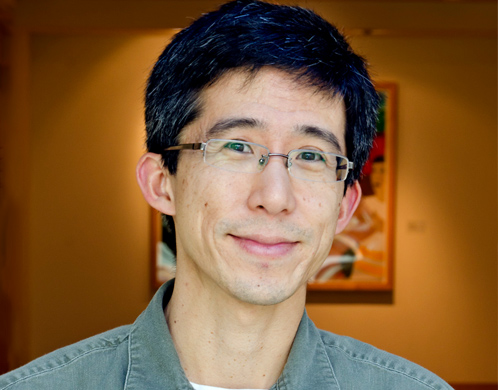 More children than ever before are surviving cancer. It’s great news, but it presents some new challenges, and one of them is keeping kids healthy as they grow into adults.
More children than ever before are surviving cancer. It’s great news, but it presents some new challenges, and one of them is keeping kids healthy as they grow into adults.
“Fifty years ago, most kids didn’t survive cancer. Today, more than 80 percent of kids who had it are long-term survivors,” says alumnus Eric Chow, M.D., Res, ’04, Fel. ’07, UW assistant professor of pediatrics and adjunct assistant professor of epidemiology.
Making sure kids stay well is his job. And his mission.
Staying Healthy
As medical director of the Cancer Survivor Program at Seattle Children’s, Chow treats the long-term health problems that radiation and chemotherapy can sometimes cause.
“We have a small but significant number of young adults who experience health issues like heart failure, and we’re trying to educate patients and their families on the need for ongoing screening,” says Chow.
Chow enjoys working with kids, and he loves the part of his job that are similar to primary care. But the pace of pediatric oncology is a lot faster.
“You get to know these kids much more quickly, within the span of days to weeks,” says Chow. “When I run into former patients, sometimes I recognize the parents first: kids grow up so fast!”
Treating the Region
The Cancer Survivor Program treats children throughout the region, but, for some families, it’s too hard and costly to travel to Seattle. So Chow goes to them. Four times a year, he practices in a wellness clinic in the Tri-Cities area. He visits Montana once a year, too.
A large part of Chow’s job is sharing information with primary-care physicians about the kind of follow-up care that cancer survivors need. This work lends itself to outreach across the region, including in Great Falls, Montana, where Chow has made several trips.
“Eric is so compassionate. And he’s a great educator, too,” says Nancy Maynard, M.D., a pediatrician at the Great Falls Clinic in Great Falls, Montana. “We’ve worked together on distributing best practices for follow-up care to doctors and families, and we’ve made great progress in treating children with cancer.”
The job’s ultimate satisfaction, though, is seeing children get better. Seeing them thrive. Chow recently ran into a former patient: she’d just graduated high school, completed a summer internship at Fred Hutchinson Cancer Research Center and was presenting at a symposium.
“It’s great to see people doing the things that they dreamed they could do before they got sick,” says Chow.

